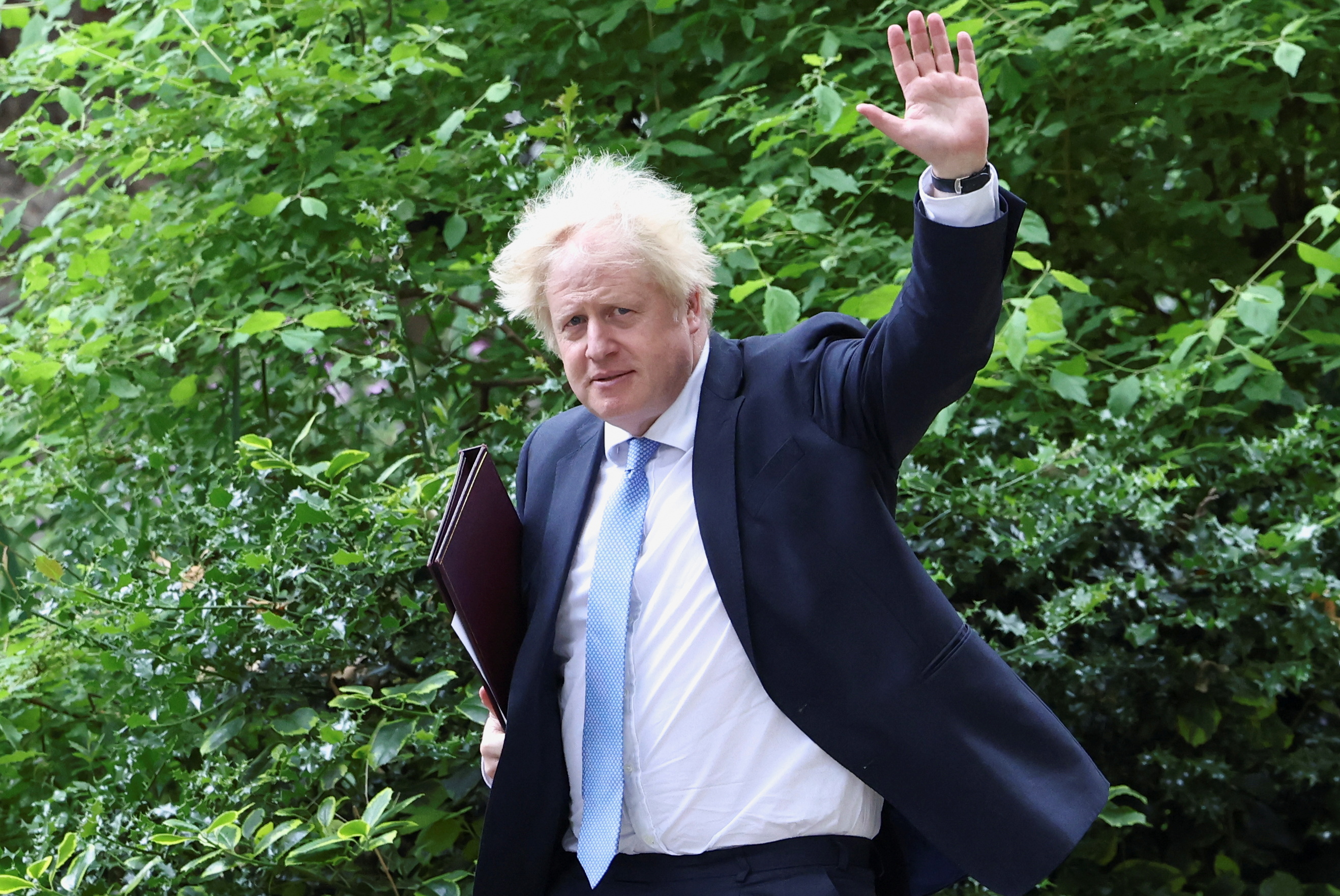Britain’s Prime Minister Boris Johnson waves, as he walks in Downing Street, in London, Britain, June 29, 2021. REUTERS/Henry Nicholls
LONDON, June 29 (Reuters) – Britain expects to reach agreement soon with the European Union on extending exemptions on customs checks on chilled meat shipments to Northern Ireland, a spokesman for Prime Minister Boris Johnson said on Tuesday, easing the so-called post-Brexit “sausage row”.
Britain has called for the extension to allow more time for the two sides to find a long-term solution to the trade difficulties over Northern Ireland, which has faced disruption since London completed its exit from the European Union.
Dubbed the “sausage row” because the customs checks could have stopped delivery of British sausages and other chilled meats from Britain, the latest row between the two sides has done little to improve already strained ties.
“We expect to agree an extension to the chilled meats grace period soon on terms that are acceptable to the UK and will announce further details in the usual way,” the spokesman said.
Under the Brexit deal, Britain signed up to the Northern Ireland protocol, which essentially keeps the British province in a customs union with the EU while the rest of Britain is now outside it.
To stop goods entering the EU’s single market through the backdoor across the land border between Northern Ireland and EU member Ireland, Brussels has repeatedly called on London to introduce customs checks on various products crossing the Irish Sea as promised in the protocol.
But with disruption to the delivery of some products angering some unionists in Northern Ireland, Britain imposed a grace period until the end of this month to avoid the checks in what it said would protect the 1998 peace deal.
The Belfast or Good Friday Agreement, ended three decades of violence between mostly Catholic nationalists fighting for a united Ireland and mostly Protestant unionists, or loyalists, who want Northern Ireland to stay part of the United Kingdom.
Another extension to that grace period is not seen as a final solution to the problem, but gives the two sides more time to find a permanent fix.
Reporting by Elizabeth Piper; Editing by Kate Holton
Our Standards: The Thomson Reuters Trust Principles.





